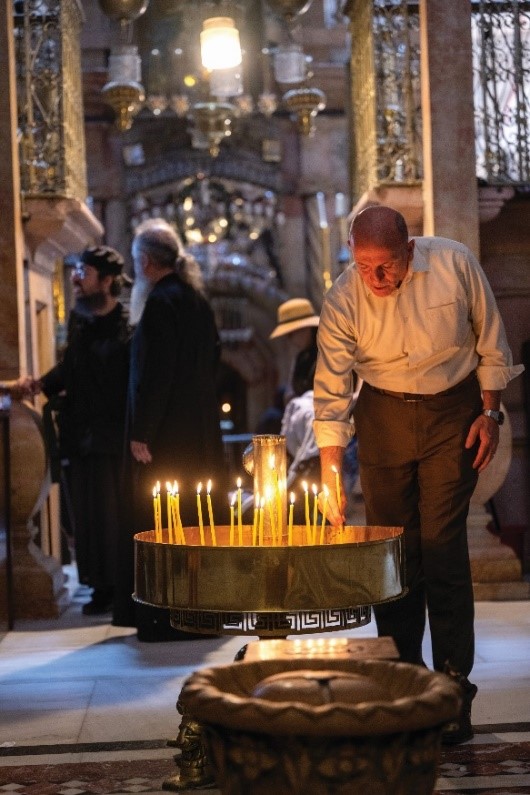A Cry for Peace: Hopes for the National Day of Prayer for Christians in the Holy Land

National
During a recent encounter with a group of Palestinian Christian youth, a discussion was held around the importance of remaining steadfast and hopeful in ‘the Land of Jesus’ – their homeland. One teen remarked, “In view of the economic hardships and political instability, the occupation and rising fundamentalism, where we Christians face extreme difficulties and feel unwelcome, why not pack our bags and return to Europe?”
By Joseph Hazboun, Regional Director of the Catholic Near-East CNEWA in Jerusalem
Although I share similar concerns about an increasingly challenging and hostile situation, I was shocked, however, at the statement “We should return to Europe”.
I began to dig further and discovered that some Palestinian Christians believe they originally came from Europe, while Palestinian Muslims originated from Hijaz (present-day Saudi Arabia). This is due to misinformation in the Palestinian curriculum which cites that Palestinian history begins with the Arab conquest of Palestine, without any indication of the first seven centuries of Christianity in the Holy Land.
Adding to that, the religious instruction in Palestinian Christian schools and in local parishes focuses on faith-building rather than Christian history in Palestine. This has led to a lack of awareness among many Palestinian Christians on the history of Christianity and the first Christian communities of the Holy Land in the first century AD.
Sadly, Muslim fundamentalism is spreading in Palestinian society, mainly as a result of the rise of ISIS in the Middle East, the literal interpretation of religious texts and teachings as well as the unresolved conflict and occupation. Fundamentalists, it seems, are also reverting to religious texts to convince the Palestinian Muslim community of Muslim superiority – expounding misinformation.
Lastly, with a recent shift in Israel’s political realm, there have sadly been more physical attacks on Church property as well as offenses made against Christian religious leaders and lay members.
We know that many members of the Christian community in the Holy Land are direct descendants of the first Christian community of Jerusalem, “they are, as it were, the only indigenous Christian community in the world.”
In addition to the vital importance of preserving the Christian community in these sacred lands, losing the Christian element in the midst of the Palestinian-Israeli conflict will contribute towards changing the political struggle between occupied and oppressed into a struggle between an advanced country (Israel) and Islamic fundamentalism.
Historically, Christians have enjoyed certain levels of freedom and respect within their respective communities and countries in the Middle East. ISIS and the manipulation of religion as a way to oppress people have led to the emigration of hundreds of thousands of Arab Christians from Iraq and Syria, and Palestine.
Today, with the increased levels of violence within the Arab communities in Israel, more Palestinian Christians are closing their businesses, unable to pay protection money, or are afraid for their lives and those of their families. In fact, many have started to learn Greek in the hopes of purchasing homes in nearby Cyprus, to flee the violence.
On the International Day of Peace and the National Day of Prayer for Peace in the Holy Land, September 21, we remember in a special way the Christians in the Holy Land and the Middle East. We ask our brothers and sisters in Canada to pray for peace for our people here. We hope for a day when our young people will rediscover their roots, remain steadfast in their homeland, and regain the ability to live their lives with dignity, in freedom.

1 Robert L. Wilken, The Land Called Holy, p. xv
About CNEWA Canada
An agency of the Holy See, CNEWA works for, through and with Eastern churches throughout the Middle East, Northeast Africa, India and Eastern Europe, providing pastoral and humanitarian support. Founded by Pope Pius XI in 1926, CNEWA was incorporated in Canada as a registered charity by Canada Revenue Agency in 2003.

Comment
Comment
Add new comment